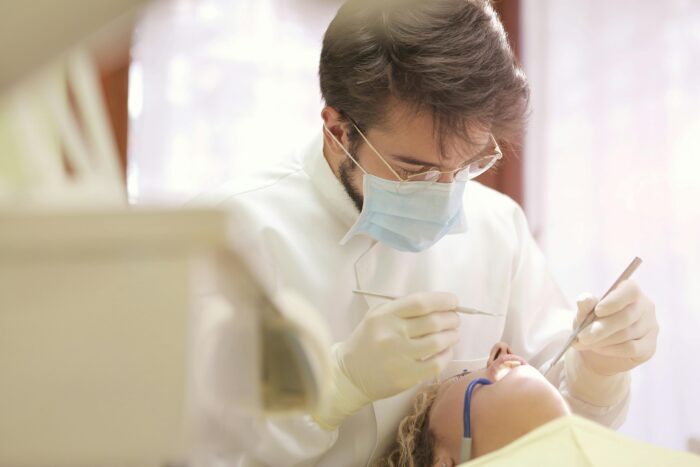Why the DMD vs DDS Distinction Matters
Ask ten people on the street what “DMD” and “DDS” stand for, and most will guess they’re different kinds of dentists. Ask ten pre-dental students, and you may still hear some hand-waving about “medicine” versus “surgery”—as if you’re choosing between a general practitioner and an orthopedic specialist. Even dental school applicants, sharp and research-savvy, often carry the mistaken assumption that one of these degrees signals superior training or a broader clinical skillset.
Let’s clear the air.
DMD and DDS are, for all practical and professional purposes, the same. They represent two names for what is essentially identical training—accredited by the same body, held to the same standards, and qualifying graduates for the same licenses and residencies. The difference? A historical quirk and a preference in institutional branding.
But the confusion lingers, and in a field as competitive as dentistry, even minor misunderstandings can steer decisions. That’s where this article comes in.
We’ll unpack where these titles originated and why they exist at all. We’ll walk you through the actual implications (or lack thereof) for your future practice, licensure, and specialization. And most importantly, we’ll help you refocus your program search on what really drives long-term success in dental medicine—not the letters after your name, but the strength of your clinical training, mentorship, and mission.
You’re not just choosing a degree. You’re choosing the environment that will shape you as a professional. Let’s make sure you’re asking the right questions.
Defining DDS and DMD: Historical Origins and Academic Equivalence
A DDS is a Doctor of Dental Surgery. A DMD is a Doctor of Medicine in Dentistry—Dentariae Medicinae Doctor, if you’re feeling scholarly. Both titles reflect a graduate-level professional degree in dentistry. Both require the same coursework, the same clinical competencies, and the same licensing hurdles. And yes, both allow you to legally poke around in someone’s mouth with a drill.
But how did two names come to represent one profession?
The story begins in 1840, when the University of Maryland awarded the first dental degree in the United States: the DDS. It made sense—dentistry at the time was viewed through a surgical lens. Nearly three decades later, in 1867, Harvard University opened its own dental school. But Harvard, famously pedantic about Latin, had a policy of aligning all degrees with their Latin counterparts. “Doctor of Dental Surgery” didn’t fit the mold. So Harvard coined a new term: Dentariae Medicinae Doctor—DMD.
That’s it. No philosophical disagreement, no pedagogical schism. Just a naming preference.
Fast forward to today: U.S. dental schools are free to choose which title they confer. The American Dental Association (ADA) and the Commission on Dental Accreditation (CODA)—the institutions that actually matter when it comes to program oversight—make no distinction between the two. Their criteria for accreditation apply equally to both, and every accredited program must meet the same academic and clinical standards, regardless of the acronym stamped on the diploma.
This isn’t just a semantic footnote. There is no federal or state licensing exam that treats DDS and DMD graduates differently. Residency programs, employers, and patients don’t either. The degrees are functionally identical.
So why does this still trip up applicants? Because it looks like a choice that matters. And in the world of high-stakes applications, when every line on your résumé gets scrutinized, superficial differences can get over-interpreted.
Your takeaway? Don’t waste time parsing between DDS and DMD programs. Instead, look under the hood—faculty quality, clinic exposure, research opportunities, and mission fit. That’s where real differentiation lives.
Academic Curriculum and Professional Outcomes: Identical in Substance
Let’s dispense with the illusion that DMD and DDS programs carve different professional paths. They don’t.
Start with the core curriculum. Whether a school issues a DMD or a DDS, you’ll be neck-deep in biomedical science for the first two years—anatomy, biochemistry, microbiology, pharmacology. No shortcuts, no second-string syllabi. This academic foundation is non-negotiable because the human body doesn’t care which letters you graduate with. The circulatory system behaves the same way whether your diploma is in English or Latin.
Clinical training follows. From pre-clinical simulations to hands-on patient care, both DDS and DMD candidates are trained in restorative procedures, prosthodontics, endodontics, periodontics, oral surgery, and pediatric dentistry. You’ll clock the same hours in the lab and the clinic, mastering the same hand skills under the same kinds of scrutiny. There’s no “light” version of clinicals for DMDs or a “surgical plus” module for DDS students. Everyone meets the same clinical benchmarks, period.
Then comes licensing. Both tracks prepare students for the exact same exams—the INBDE (Integrated National Board Dental Examination), and the regional clinical boards required for state licensure. These are standardized assessments with no degree-specific variants. Your diploma might differ by three letters, but your testing experience and qualifications will be identical.
And post-graduation? The playing field stays flat. DMDs and DDSs alike are fully qualified for general practice the moment they pass their licensure exams. They’re equally eligible to pursue board-certified specialties, from orthodontics to oral and maxillofacial surgery. They’re eligible to teach in dental schools, direct residency programs, lead professional associations, and publish in academic journals. In fact, look at the leadership of major organizations like the ADA or the ADEA—you’ll find both DDS and DMD holders occupying the highest ranks, indistinguishably.
Still skeptical? Here’s the inside scoop: admissions officers, program directors, and residency supervisors don’t give a second thought to the degree title. It’s just not part of the evaluation matrix. In interviews with admissions staff across top-tier dental schools, the message is consistent—what matters is your academic performance, your patient care experience, your character, and your commitment to the profession. Not the abbreviation of your degree.
So if you’re trying to decode whether a DMD or DDS will open more doors, stop. They both open the same ones. Focus instead on the quality of training, the culture of the institution, and how well the program aligns with your long-term goals. That’s where future success is built.
Perception vs Reality: The Persistent Myth of Superiority
Despite the evidence, the myth persists: that a DDS is somehow more “surgical,” or that a DMD is more “medical,” or that one implies a higher tier of education or prestige. None of it holds up. But perception—especially in the age of Reddit threads and TikTok testimonials—can be a stubborn thing.
Regional preferences often fuel this confusion. In parts of the country where DDS programs dominate—say, the West Coast—it’s not uncommon to hear whispers that DMD schools are somehow “less traditional.” Flip the map, and in the Northeast, where Harvard and Tufts award DMDs, the script reverses. Applicants start wondering if DMD signals Ivy-level rigor while DDS suggests something more utilitarian. Neither view is grounded in reality.
Then there’s the internet. Pre-dental forums overflow with speculation, half-truths, and anecdotal “rankings” that confuse branding with substance. A school’s marketing may highlight its DMD or DDS credential as a point of distinction, but that’s strategy, not pedagogy.
We’ve guided clients into both DDS and DMD programs—Columbia, UCLA, Boston University, UT Houston—and followed their trajectories into elite residencies, private practices, academic appointments, and leadership in professional organizations. Their degree title has never once been the differentiator.
Dental school deans have been unequivocal on this point: both degrees represent identical training and outcomes. In one interview, a dean at a leading DDS program said bluntly, “We could call it ‘Doctor of Dental Artistry’ and it wouldn’t change a thing. It’s what you learn here that matters.”
As for patients and employers? They’re focused on results. Compassionate care. Clinical skill. Trustworthiness. No one ever picked a dentist because the diploma said DMD instead of DDS.
So let’s retire the myth. Your future in dentistry will be shaped by your effort, integrity, and clinical excellence—not by three letters chosen by a branding committee in the 1800s.
What Aspiring Dentists Should Actually Prioritize
If you’re serious about a future in dentistry, forget the DMD vs DDS debate. It’s a distraction. The real game is evaluating what each program offers beneath the surface—because that’s what will shape your skillset, your opportunities, and ultimately, your career.
Start with institutional reputation and accreditation. Only consider schools accredited by the Commission on Dental Accreditation (CODA)—no exceptions. Beyond that baseline, look at how each institution is perceived within the dental community. Which programs are known for surgical excellence? For pioneering research? For producing top-tier general practitioners?
Then, dig into the clinical experience. How early does patient care begin? How many hours of hands-on training are built into the curriculum? Does the school serve a diverse patient population, giving you exposure to a wide range of cases? Quantity and quality both matter here. You don’t want to graduate having only seen the basics.
Faculty mentorship is another game-changer. Great mentors don’t just teach—they coach, connect, and champion you. Look for schools where faculty are accessible, actively involved in student development, and invested in research. Speaking of which: if you’re at all research-inclined, evaluate publication volume, student participation in projects, and funding support.
Residency placement rates offer hard data on outcomes. Which specialties are graduates entering? At which institutions? What percentage matches into competitive programs? And don’t overlook alumni networks—strong, engaged graduates can open doors you didn’t even know existed.
At MBA Exchange, we work side-by-side with applicants to sort through these details. We analyze program metrics, connect with insiders, and help clients weigh options not by surface prestige, but by strategic fit. Then we help build applications that highlight your strengths in ways that resonate with admissions committees.
Checklist: What Actually Correlates With Dental School and Career Success
- CODA accreditation
- High clinical hours and early patient exposure
- Case diversity across multiple specialties
- Accessible, experienced faculty with a track record of mentorship
- Robust research opportunities and infrastructure
- Consistently strong residency match rates
- Active, supportive alumni network
- School mission and values aligned with your professional goals
- Proven outcomes for graduates in your intended practice area
When you know what matters, the decision becomes clearer—and the path ahead, far more strategic. That’s how you stop reacting to myths and start building a real future in dentistry.
Conclusion and Call to Action: Secure Expert Guidance for Your Dental Journey
DMD or DDS? It doesn’t matter. Not to the ADA, not to residency programs, not to employers—and certainly not to your future patients. These degrees are academically and professionally identical, full stop.
What does matter is how strategically you approach your dental school journey. The fit between your goals and a school’s strengths. The clarity of your personal statement. The impact of your interviews. This is where careers are made—or missed.
At MBA Exchange, we help aspiring dentists cut through the noise and craft standout applications rooted in substance, not semantics. Our team provides one-on-one guidance to help you select the right schools, articulate your story with precision, and position yourself for success in a competitive field.
Ready to take the next step? Schedule a free consultation today. Let’s build your future in dentistry with the strategy and confidence it deserves.





